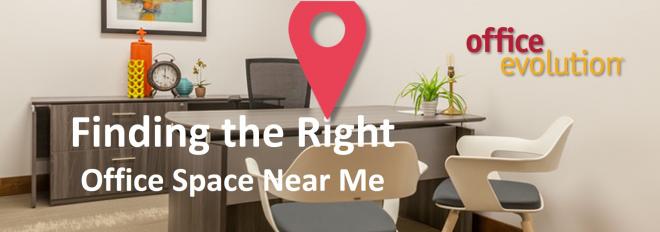
3 Ways to Make your Start-Up Workspace More Flexible
Has your start-up out-grown your home? If you’re ready to make the move out, here are three options you should consider…
Around 70% of new businesses start off at home. It’s a logical move: you have a place to hunker down and work, a phone and internet connection, and you can claim tax deductions on using your home as an office.
But sooner or later, there comes a time when your home environment ceases to be a viable option for your start-up. It’s simply not professional enough. A workplace is an essential business tool, and investors and clients are much more likely to back your new business if you operate from a fully equipped, professional environment. It shows you mean business.
However, that doesn’t mean your office must take up the lion’s share of your start-up capital. The number of US start-ups is rising every year, and this huge wave of entrepreneurialism is fueling demand for cost-effective, supportive and flexible workspaces. Many of these environments offer short-term contracts or memberships designed to work around your requirements, ranging from just a few hours’ usage per month to full-time, 24/7 access.
Here are three forms of flexible workspace solutions designed to help start-ups step onto the workplace ladder:
1. Business address and virtual office
In the early days, many start-ups don’t need a physical office at all. These ‘third place’ workers are often out on the road meeting clients and catching up on emails in hot-desk environments, in a cafe or at home in the evenings.
Yet, these businesses still lack an outwardly professional business address. Mail goes straight to the home address, calls go to mobile and business owners don’t have a suitable place in which to hold meetings.
For these start-ups, a virtual office solution is ideal. Essentially, a virtual office provides all the workspace services a small business needs without the tangible workplace itself. Typically, a Virtual Office provides:
- A business address and mail handling facility at a specific office building or business center;
- Mail sorting and forwarding to your home address;
- A local business phone number with a receptionist answering and forwarding calls during business hours;
- The option to use day desks and meeting rooms at your business address facility throughout the week.
For start-ups who don’t need a physical office environment just yet, a virtual office provides a professional office front and helps protect the home address from unexpected callers and huge volumes of business mail.
Is it right for you? A virtual office is a good way to be ‘seen’ in a specific location. It’s cost effective, and can also be used alongside a physical office as your company grows, to test new markets.
2. Shared workspace and co-working
At some point the time will come to vacate the home office, which often happens when the solitude of working at home alone sinks in. The next step is to search for a local shared office or co-working space. These workspaces typically operate on a monthly membership basis and provide hot-desks in a shared office environment.
Most co-working spaces offer a mix of open-plan workspace, private offices and meeting rooms, which are available either on monthly terms or pay-as-you-go usage. These shared workspaces provide welcome relief from the solitude of working from home and enable start-up business owners to collaborate with other co-workers, share knowledge, swap contacts and even do business together.
Is it right for you? The big benefit here is collaboration and human company. Co-working spaces are popular with independent professionals and freelancers, and they’re also gaining traction with larger companies who use them as overflow space for teams or ‘touchdown’ desks for travelling employees.
3. Dedicated Space
Private offices are the next step up from co-working spaces. They provide private workspace of varying sizes, typically ranging from small single offices for one or two people up to team-sized rooms for 10 or 12.
Private offices incorporate on-site management services, so they are usually more expensive than a co-working space. Prices vary enormously depending on location, fit-out and lease terms.
The key with private office is flexibility. You’ll often find dozens of furnished, connected, ready-to-go serviced offices inside business centers, enabling start-ups to move into a small office and, with time, to grow into larger suites as the company expands. Contracts are often short-term and flexible, typically starting from just a few months, and allow clients to scale their workspace up or down as the need arises.
Is it right for you? A private office may not be suitable for new start-ups, given the cost commitments. However, it provides a flexible, scalable environment in a professional setting that’s perfect to grow into.
Office Evolution Columbus
At Office Evolution Columbus, we understand the unique challenges of being an entrepreneur, and we have designed our services with the modern day, flexible, entrepreneur in mind. Our Virtual Office or Entry Level Services ranges from a private mailbox, to meeting space, to phone answering service providing the support you need in your entrepreneurial journey.
We also offer the ideal combination of a Coworking Community and Private Offices. We serve the Columbus metropolitan area with 3 locations, so when you start looking at office space near me or a conference room near me or a meeting space near me, we are close to Powell, Dublin, Hilliard, Grove City, Worthington, New Albany, Westerville, Bexley, Blacklick, Clintonville, Upper Arlington or Reynoldsburg, choosing Office Evolution Columbus in Dublin, Worthington or Easton Town Center will help your budget remain flexible, with more money to spend on the things that matter most to your business.
Contact us today to set up a tour at our Dublin, Worthington or Easton, Ohio locations.
Dublin – [email protected] (614) 495-9274
Easton – [email protected] (614) 944-519
Worthington – [email protected] (614) 985-3600